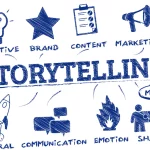What do you think is the best thing about writing? I think it’s the fact that everybody can write, and everybody does write. Unfortunately, this is also where the problem lies in writing.
When something seems so natural, it’s easy to take it for granted and make silly mistakes. However, these so-called silly mistakes can cost you a lot without you knowing.
This post is not about writing catchy headlines, hooking intro lines, or throat-grabbing conclusions. It’s about how to improve your writing with the little things that make a huge difference to you and your readers. See, writing is not just a profession. It’s a way of life. As a writer, you wield the power to influence, impact and transform.
At the end of this piece, you’ll remember the basic principles of writing that most people ignore. I say “remember” because you know these things, but the race to generate content quickly for your blog or clients or some writing challenge makes you overlook some of them when you write. If you’re entirely new to the writing game, make these elements a guide for whatever message you intend to pass in written form. It’ll go a long way to improve your writing.
Table of Contents
7 Core Elements to Improve your Writing and Generate Effective Content
-
Simplicity
Have you ever heard the term “technical writing?”
Well, people define it as writing that involves explaining technical concepts in a way that’s easy to understand for the intended audience.
I don’t know why only technical writing has that definition. I think that’s what all kinds of writing should be. Whether you’re writing to inform, educate, or entertain, there’s always the need to simplify certain things so your audience can get the message or the joke.
Even if you’re journaling to clear your head, you’ll realise that as you move from one line to the next, you’re actually simplifying the things that are bothering you.
Simplicity in writing is the quality of being easy to understand and implement. According to the great Leonardo Da Vinci, it is the ultimate sophistication.
If you want to improve your writing, try to always remember these wise words. I don’t care what you write – Fiction, Poetry, Subject matter pieces, News, Anything at all – your final product will be impressive.
One thing I need you to know with this first point is that simplicity is not synonymous with simplistic.
In terms of writing…
Simplicity is… Simple. Profound. Uncomplicated. Direct. Sophisticated. Impactful.
Simplistic is surface information. It explains but doesn’t answer the question. It appears to be direct but ends up being confusing.
Let me use this fun scenario:
An alien in your room wants to eat a boiled egg, but the shell is still intact. So, this alien asks, “how do I eat this?”
Being simple is: Hit the egg on a slightly hard surface to make a crack. Slowly peel off the cracked surface (the shell) to find a softer white layer. Once the shell is completely out, you can eat the egg.
Anybody can successfully eat a boiled egg with this explanation, right?
Contrarily, this is simplistic: Remove the shell. Put the egg in your mouth, chew slowly, and then swallow.
You may think you’ve helped this alien, but you’re wrong. Yes, your words are straightforward. Yes, your instructions are clear.
But…
But, you didn’t answer the question. “How do I eat the egg?” Because you still haven’t told me how to remove the shell.
The major cause of simplistic writing is assumption. You assume your audience knows something because everybody you’ve met knows it. Or because it’s the simplest thing in the world.
That’s a wrong approach to writing. Simplicity is not just about using simple English. It’s about being thorough. That little detail is all it takes to improve your writing and make your message useful.
If you’re writing fiction, your goal should be to help your audience paint a picture so clear that they flinch when a character throws a punch in a particular direction.
If you’re into content, your goal should be to answer the exact question that your audience asked before they found your content.
If you’re into academics or other technical formats, your goal should be to ensure that once your reader gets to the last period (full stop), they can nod and say, “I got it. Thank you.”
-
Word choice
Let me say this for the record. The rest of the elements I’ll mention directly or indirectly relate to simplicity.
So, how do you pick your words?
I know you must have read or heard many things that say, “don’t use jargon.” They’re not wrong, but that’s not what I’m here to tell you.
I’m here to tell you this: let your audience determine the choice of words.
When you’re writing fiction, it’s smart to use some big vocabulary occasionally. People love finding new stuff in novels. I love finding new stuff in novels and stories. Don’t you?
If you’re writing content, it’s better to use an active voice for easy flow. But when you’re doing academic writing or science reporting, nobody will criticise you so much for using passive voice.
Words like bone-chilling, horrifying, and breathtaking are perfect for storytelling in fiction and copy or content writing, but people will frown at you for doing that in academic writing. It just won’t fly.
This is where research comes in. It gives you the words that your audience can relate to. It helps you use words that’ll make them stop, read a line twice, and then smile because they get the inside joke. The right choice of words will strike a chord in your readers when you want it to.
One word. One phrase. One very silly sentence can make the difference between a successful and poorly performing piece.
Always remember this as you constantly improve your writing.
Read also: The beginner’s guide to freelance writing in Nigeria
-
Formatting
You know how designers pay attention to colour, tone, spacing, and all that jazz?
That’s the same way you should be serious about your formatting if you want to improve your writing. Formatting is the aesthetics of your work.
Imagine I’ve been typing everything I’ve mentioned here today without spacing. Or I just packed all this information in one very annoyingly long piece.
Just imagine.
Will you read it?
Even if you’re nice enough to try to read it, do you think you’ll learn anything from it? The chances are slim.
Formatting creates the first impression of your piece as a writer. If the appearance is poor, no one will stay long enough to read your second paragraph. That’s if they manage to read the first.
Use paragraphs, bullets, page breaks, indentation, alignments, etc.
Remember, we’re going for simplicity regardless of how complex your topic of discussion is.
-
Font style and size
This also speaks to the appearance of your piece. Don’t use faded or cursive font styles unless you’re writing about calligraphy. Remember that most of your readers may be reading from a relatively small screen. Our eyes are already crying for help from the screen strain. Don’t make it worse with your choice of font.
Choose legible fonts and big enough sizes. I’d recommend fonts in the serif and san serif families like Times New Roman, Garamond, and Georgia. They’re not only legible, but they’re beautiful too. I love Georgia.
Read also: How to become a successful freelance writer in Nigeria
-
Cases
That is, uppercase and lowercase or capital letters and small letters, as you wish. Please, in the name of all that is holy, don’t use capital letters anyhow.
DON’T SCREAM AT YOUR READERS!!! Gosh! How did your brain interpret that message? How did you picture me saying that? Screaming, yeah? And with the multiple exclamation marks too…
Let me ask you this. Have you noticed that most movies with subtitles only capitalise the subtitles when someone is shouting or screaming?
That’s precisely what capital letters are for.
Shouting.
If you want to emphasise something, use bold formatting instead of putting an entire paragraph in uppercase. It’s enough to draw attention without making me feel like you’re screaming at me.
I’ve seen people run away from reading pieces with excess capital letters. And I’ve seen people use it excessively. If you want to improve your writing skill and also have an audience that benefits from you, don’t scream your words. Nobody likes that.
-
Punctuation
Punctuation is a crucial element of writing that, once you master it, you automatically improve your writing skills. There are so many punctuations outside the ones we’re familiar with – ellipses, em dash, and some that probably have no business in content. Punctuations give context and solidify the meaning of a sentence, paragraph, and an entire piece.
When used correctly, you have a better chance of passing across your intended message. Otherwise, your content loses meaning because there’s no tone or emotion to draw people in.
For instance, exclamation marks make people jump or sit upright or celebrate. Question marks make them wonder. Semicolons make them think and connect the dots.
As much as punctuations are great for context, excess usage also makes the piece lose its appeal. Remember the multiple exclamations above? Pay attention to these little factors to engage readers and encourage reactions. You can’t just write for writing’s sake. You should write to make a difference.
And this takes us to our final point.
Are you interested in more tips like this? Follow us on instagram and enjoy posts on writing, freelancing, and online business success.
-
Impact over Impressing
After reading your piece, what do you want people to feel, think, or do? Do you want them to think, “Oh, this is a smart writer,” and go on with their business? Or do you want them to say, “This is brilliant. Hey, Charlie! You have to read this, man!” Or lift a sentence you made and turn it into their life principle?
Hm?
The reality is that you can impress without impacting. But it’s impossible to impact without impressing.
So, focus on giving your readers the best experience ever. If you’re in the game for praises, they’ll come. Oh, praises will rain as long as you touch something within your readers.
Wrapping Up
Being an effective writer means being an effective communicator. These seven elements are overlooked in many situations like sending a cold email, writing a proposal, applying for a job with a cover letter, etc. It is likely one of the reasons, or I dare say, the only reason why you’re not getting the results you want.
If you want to improve your writing skills and gradually take it to the next level, hold these factors close and use them as a checklist before you hit save, send, or publish. Trust me; it makes a difference.
Are you interested in online content writing but not sure how to proceed? Insight Digital Academy has just the perfect course for you. Send a message now to get the details.
About Author
-
An experienced freelance SEO content writer and editor. She helps individuals and businesses communicate effectively with their audience and also improve their organic reach with relevant content.
She's an author of several short stories and a devoted lover of the paranormal and fantasy world. Asides business and lifestyle, she also writes about life science and technology.
Latest entries

 CampusMay 8, 2023A Simple and Thorough Guide to Writing an Academic CV (with an Editable Template)
CampusMay 8, 2023A Simple and Thorough Guide to Writing an Academic CV (with an Editable Template) Business InsightsMarch 26, 2023An Insightful Guide to Storytelling in Business Communication (for Business Owners and Content Creators)
Business InsightsMarch 26, 2023An Insightful Guide to Storytelling in Business Communication (for Business Owners and Content Creators)![Content Editing for SEO [A Full Guide to Edit Your Content for SEO] 14 content editing for SEO](https://insight.ng/wp-content/uploads/2022/10/Web-content-editing-150x150.png) Business InsightsOctober 23, 2022Content Editing for SEO [A Full Guide to Edit Your Content for SEO]
Business InsightsOctober 23, 2022Content Editing for SEO [A Full Guide to Edit Your Content for SEO]

